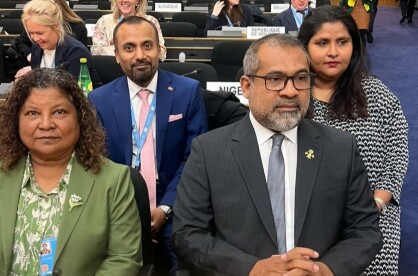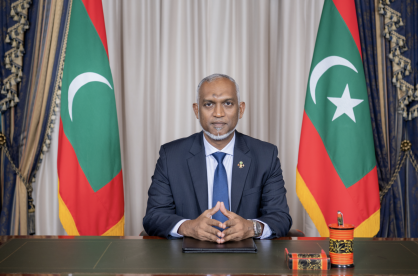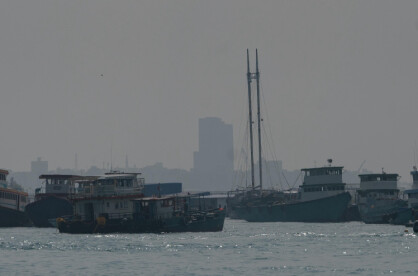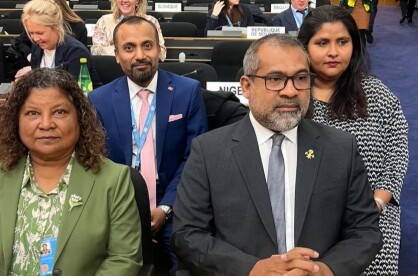Democracy hijacked: the decay of education
The lack of investment in education is the biggest loss this nation will ever face.

The lack of investment in education is the biggest loss this nation will ever face.

Maldivian democracy is far from perfect. It has been argued on multiple stages that democracy as a system is doomed to fail, yet there are nations where democracy has worked amazingly well, coupled with the right economic systems and proper leadership. However, what is to be seen today is a generation disillusioned with the real issues, instead herded into a future that feels bleak and repetitive. The foundation needed to build a better nation seems to be failing in the education component.
The foundation of every State is the education of its youth.
Maldivian democracy is riddled with corruption, increasing debt, and band-aid policies with little long-term investment in terms of human capacity building and sustainability. In this regard, the education system sees failings where the Solih Administration has been unable to 'read the room,' to understand to a workable extent what the real issues are and how to tackle them. With a failed education system, the result would be another generation of ignorant, unqualified, directionless leaders and incompetent subordinates, carrying the nation into the highly globalised and advanced world.
Surprisingly enough, the main issue stems not from recent history, but from the Maumoon administration. Why it is surprising is how under Maumoon’s rule and the leadership of educated, driven, ministers; pioneers of the expansion of education for all communities in the nation, was what created such a large leap of literacy in the country. From developing 20 schools to 200 is no mean feat, yet certain precedents were set where the most important members of the education field, the teachers themselves, were not given the due consideration they deserved.
Adding on to the history, a large number of the population were given education opportunities by the government to study bachelors degrees in other nations like Australia, and complete Masters degrees in North America. This created a generation of well educated, informed, and experienced leaders, with the capacity to lead a developing nation up on the global ladder. However, times and priorities changed, and the situation has been deteriorating since.
True, locals being given priority in employment is important, yet without fully understanding the intricacies of the system, replacing as many foreign professionals with subpar, unprepared members of the population set the precedent being followed years later. The low-blow was struck more intentionally by Former President Mohamed Nasheed, with his policies that prioritised more political shifts and economic privatisation, including that of the education sector. Teachers were not being held to the standards expected of a rapidly developing, highly literate nation, and neither were the salaries.
Fast-forward a few years, and a couple of administrative cabinets consisting of ill-equipped, unqualified, coalition-insisted political appointees, the Solih Administration repeats the same approach to Maldivian governance. This meant that parents that were the product of the Maumoon administration's robust education system are now attending parent-teacher conferences and finding out their children’s educators aren’t nearly as capable as the teachers they had when they were in school.
Teachers play the most crucial role in preparing entire generations of citizens, citizens who are tasked with shouldering the burden of the nation and the world in preparation for the generation that would follow them. Their education and upbringing today is what the adults of the present are tasked with, and this task seems to be slipping through their fingers.
Teaching is not considered sacrosanct anymore, and some of the people being recruited for this work are those that are barely prepared nor suited for the job. Most of the primary school teaching staff seems to consist of fresh o'level graduates, who are inexperienced, young, and then propelled into full-time positions due to failings in the system. There is a shortage of qualified staff in the first place, and this is one of the many leaks on this proverbial ship already in turbulent waters.
From the administrative end, the issues are layered. Firstly, by vehemently privatising the education sector with little to no checks and balances and standards enforced, has created a culture of a certificate for quick profits. The many private higher education institutions do not employ teachers that are capable of shouldering the teaching requirements for degree students. Many students have been complaining of incomplete syllabi, internet-copied exam papers and assignments, lacunas in certain subjects, and many other issues. These students are the ones preparing to take over influential, important positions in the future, yet they are not given the right tools for their careers.
As for the point of teacher’s salaries, the second point that is in the control of the administration, the values are laughable. The highest civil service level teachers of CS15-5 rank receive a measly MVR10,640 as their basic salary. Does the government not realise that to be a teacher sufficiently capable of educating young minds in this fast paced, highly aware world, they would need not only to finish a bachelors degree, but then masters, and then complete a teaching course on top of that? These are no meagre tasks, these are steps people who are passionate about teaching and imparting knowledge and wisdom would take. Yet with the current level of spending, no wonder the passionate teachers can’t even support basic living, especially in the city.
To further cement the utter disregard to the teaching profession, make the painful comparison with salaries of local council members. Keep in mind there’s little to no qualification required for these salaried, politically elected positions, where entire communities’ infrastructure is being worked on. A city council member’s salary tops off at MVR30,000 per month, and the lowest salary goes to island council members at MVR 12,000. The matter can be further elaborated by discussing the salaries of the hundreds of State Ministers (which is more of a coalition-demanded monetary prize rather than a crucial part of an administration), but one can get the gist of the picture.
In one of the most educated communities of South Asia, Ministers are not appointed for the betterment of a nation, but rather to appease political promises from one player to the other. The manifestoes are drawn up not with proper research and budgeting, let alone political ideology, and these manifestoes are used to garner public trust enough to keep these players in power for at least five years.
An investment in knowledge pays the best interest.
How many presidential terms need to end, how many generations need to finish subpar schooling, before the cracks in the foundation are addressed? Buildings are propped up continuously, private companies allegedly affiliated with political players are handsomely compensated, while batch after batch of students are being taught with little to prepare them for the world, let alone leading their nation when it is their turn. The lack of investment in the education sector is the biggest loss this nation will ever face, with the consequences lasting for generations to come.



